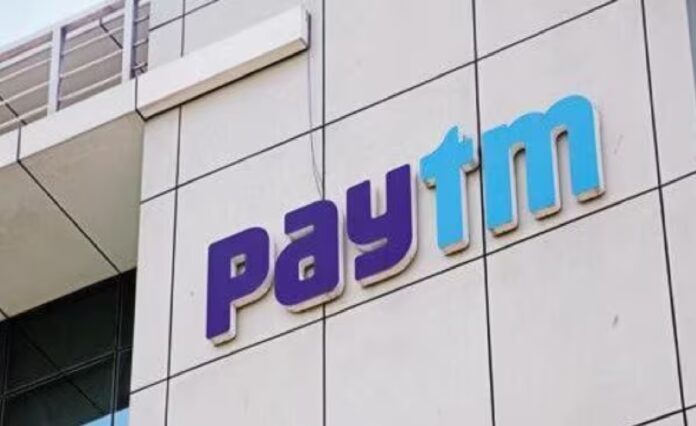NPCI Grants Paytm Approval to Onboard New UPI Users Amidst Regulatory Compliance Conditions
In a significant development for Paytm, the National Payments Corporation of India (NPCI) has granted approval for the company to resume onboarding new Unified Payments Interface (UPI) users, a move that is likely to provide relief to the fintech giant. The approval comes with the stipulation that Paytm must strictly adhere to all procedural guidelines and regulations set forth by NPCI and other relevant authorities. This development, announced in a late-evening BSE filing by Paytm on October 22, 2024, marks a pivotal moment for the company as it seeks to regain momentum in the UPI market.
The official statement from Paytm, a subsidiary of One97 Communications, outlined that the approval is conditional on the company’s compliance with NPCI’s guidelines and circulars. These include directives on risk management, branding, multi-bank integration, and the handling of third-party app provider (TPAP) market share, as well as safeguarding customer data. This meticulous regulatory oversight reflects the growing emphasis on ensuring that payment platforms maintain stringent security measures and consumer protection protocols in India’s rapidly expanding digital payments ecosystem.
The NPCI letter, addressed to Vijay Shekhar Sharma, founder and CEO of One97 Communications, laid out specific legal and regulatory expectations. Paytm must comply with multiple laws, including the Payments and Settlement Act of 2007, the Information Technology Act of 2000, and the Digital Personal Data Protection Act of 2023. Additionally, the company is required to follow NPCI’s 2018 circular on the storage of payment system data. These legal requirements underscore the NPCI’s commitment to maintaining a secure and transparent digital payments infrastructure, particularly as digital transactions continue to grow in India.
One of the key conditions attached to the approval is that Paytm must adhere to a tri-partite agreement between NPCI, Payment Service Provider (PSP) banks, and the fintech company itself. This agreement governs the operational framework of UPI services, ensuring that there is a clear delineation of roles and responsibilities among all parties involved in facilitating UPI transactions.
The NPCI’s approval comes after Paytm’s request, submitted on August 1, 2024, to resume onboarding new UPI users, following restrictions imposed by the Reserve Bank of India (RBI) earlier in the year. These restrictions, effective from January 31 and February 16, 2024, had halted Paytm’s ability to register new users on its UPI platform. While the exact reasons for the RBI’s directive were not fully disclosed, it was likely part of a broader regulatory push to ensure compliance with emerging data protection and payment security standards.
In the letter, NPCI stated that it had thoroughly examined Paytm’s request and was satisfied with the company’s compliance measures, granting permission to One97 Communications to onboard new users under specific conditions. The approval is a significant step forward for Paytm, as the fintech firm had faced a competitive setback in the highly lucrative and fast-growing UPI market in India. UPI, a real-time payment system developed by NPCI, has become a cornerstone of India’s digital economy, allowing users to link their bank accounts and conduct transactions seamlessly via mobile applications.
The NPCI’s decision to allow Paytm to onboard new users is likely to help the company recover lost ground in the UPI ecosystem, where competition has been intensifying among major players such as Google Pay, PhonePe, and Amazon Pay. With the approval in hand, Paytm can now re-engage with millions of potential users, enhancing its footprint in the digital payments sector. UPI has witnessed exponential growth in recent years, with over 10 billion transactions per month as of mid-2024, making it an essential tool for both consumers and businesses alike.
While the approval is a positive development, it also places significant responsibility on Paytm to ensure strict compliance with the regulatory framework governing UPI transactions. The fintech firm will need to demonstrate that it can handle user data securely, mitigate risks associated with financial fraud, and align with the legal provisions stipulated by NPCI and other regulatory bodies. Failure to adhere to these guidelines could result in further sanctions or restrictions, highlighting the importance of robust internal governance and compliance mechanisms within Paytm’s operations.
The regulatory environment for digital payments in India is becoming increasingly stringent as authorities seek to balance innovation with security. Recent legislative developments, such as the Digital Personal Data Protection Act of 2023, have placed new obligations on companies to protect user data, with heavy penalties for non-compliance. Additionally, guidelines around the storage of payment system data emphasize the need for localization and tighter controls over how sensitive financial information is managed.
For Paytm, the NPCI’s approval represents not only a chance to expand its user base but also a crucial test of its ability to operate within this evolving regulatory landscape. The fintech firm, which already offers a wide range of financial services, including car, bike, health, and life insurance, now has an opportunity to further consolidate its position in the UPI market. However, this will require careful navigation of the complex web of regulations that govern the sector.
In conclusion, the NPCI’s approval for Paytm to resume onboarding new UPI users is a welcome development for the company as it seeks to regain its competitive edge in the digital payments space. The conditions attached to the approval reflect the broader regulatory focus on ensuring that fintech companies operate in a secure and compliant manner. As Paytm moves forward, its ability to adhere to these guidelines will be critical in determining its success in the rapidly growing UPI ecosystem.

